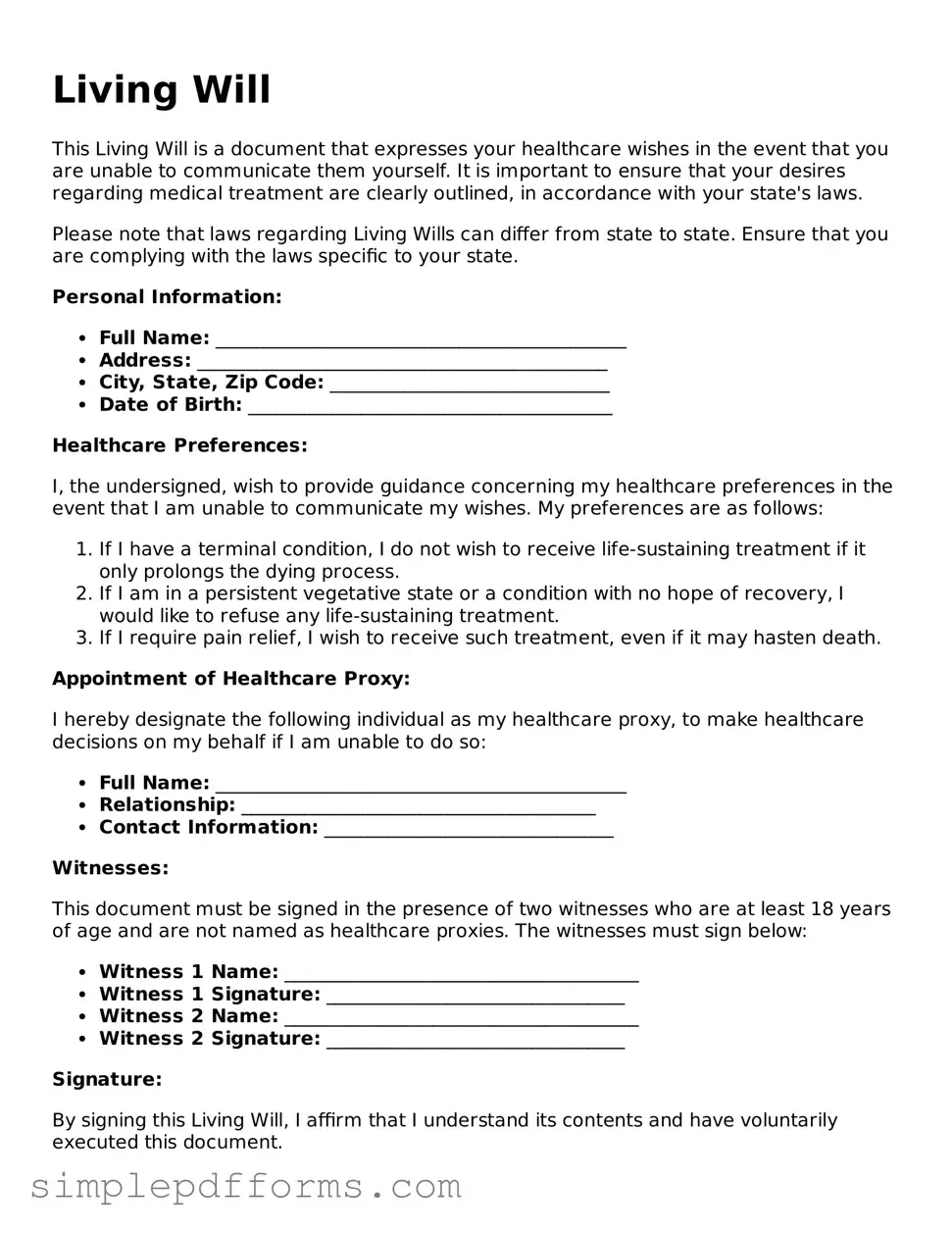Free Living Will Form
A Living Will is a legal document that outlines an individual's preferences regarding medical treatment in situations where they are unable to communicate their wishes. This form provides guidance to healthcare providers and loved ones, ensuring that a person's desires are respected during critical moments. Understanding the importance of a Living Will can help individuals make informed decisions about their healthcare in advance.
Open Living Will Editor Now

Free Living Will Form
Open Living Will Editor Now

Open Living Will Editor Now
or
Get Living Will PDF Form
Your form is waiting for completion
Complete Living Will online in minutes with ease.